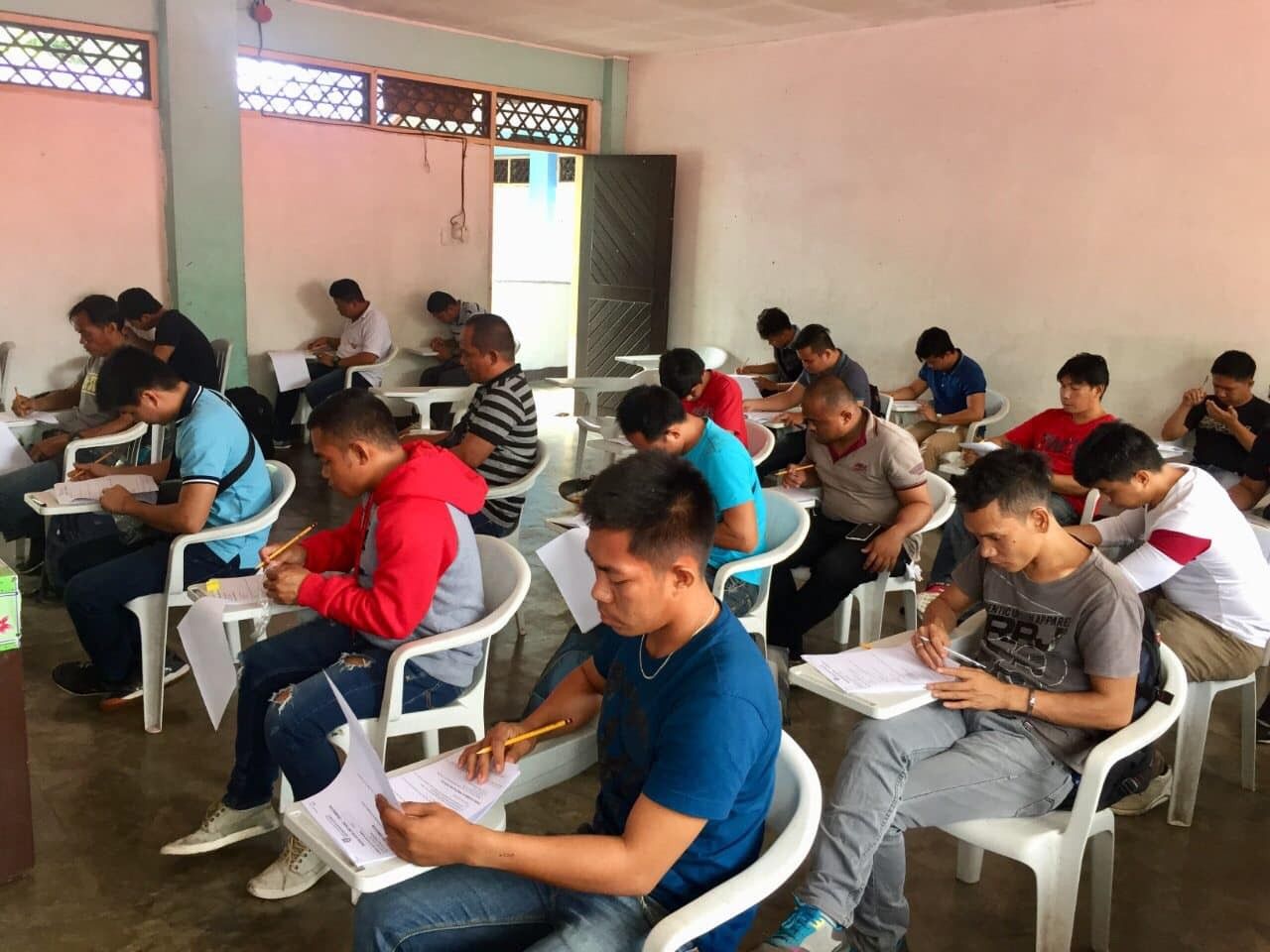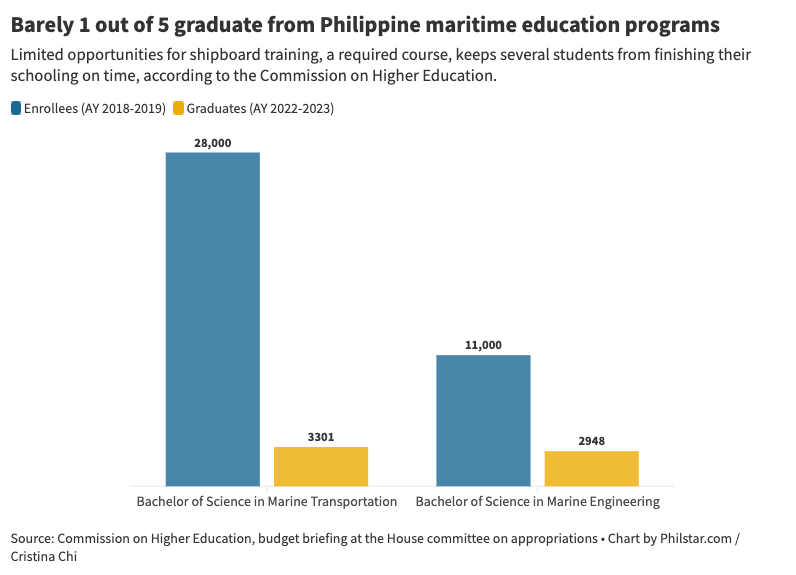Only 1 out of 5 graduate from maritime programs on time — CHED data

MANILA, Philippines (Updated 3:42 p.m.) — Only around one out of five students enrolled in the Philippines' maritime education programs have graduated on time, according to the Commission on Higher Education's latest data, with lack of training opportunities on ships cited as a main factor for the low completion rate.
Around 19% of all those who enrolled in the country's two main maritime education programs in the school year 2018-2019 have graduated from the course as of 2022-2023, said Jorel Ramirez, CHED's officer-in-charge for the division that handles maritime education during the House appropriations committee's deliberation of the proposed 2025 budget last week.
Ramirez provided the following figures:
- Out of the estimated 28,000 who enrolled in the Bachelor of Science in Marine Transportation program in 2018, just 3,301 graduated four years later.
- Meanwhile, the Bachelor of Science in Marine Engineering program only produced 2,948 graduates despite having "more than 11,000" enrollees four years ago in 2018.
Taken together, Ramirez said the "success rate for both programs is 19.85% per latest [data]."
Philstar.com's computation of the sum of all graduates (6,249) divided by the total enrollees (39,000) shows the graduation rate is at 16%. We have reached out to CHED for clarification on the data.
Both programs prepare students for careers as marine deck officers and marine engineers, respectively. The programs span four years, including three years of academics and a one-year shipboard training.

Rep. Ron Salo (Kabayan Partylist) expressed concern over the "low success rate" in maritime programs as this is already down from the low 33% reported last year.
Asked to provide the success rate of the eight state universities and colleges (SUC) providing maritime education programs, Ramirez said in Filipino the commission had no data specific to public universities, saying: "but because we just have 8 SUCs [with maritime programs], it does not matter that much."
Salo pressed CHED further, saying: "I really doubt that."
"I'm asking because we know this is a relevant issue, especially for private maritime institutions. Even if we lump them together with SUCs, just 14% (sic) graduate from them," Salo said in Filipino.
"Why is the percentage this low?" the lawmaker asked.
Ramirez explained that one of the reasons behind the low graduation rate is that the the Philippines does not have enough ships to provide maritime students with onboard training, and their numbers are still growing.
"We produce many (students), but we only have a limited number of ships in the country. This is the same case even internationally," Ramirez added.
The CHED official said that the commission cannot ascertain the exact number of maritime students whose studies were delayed due to the lack of slots for shipboard training.
"One of the reasons why we can't get the exact data for this, because some of those who take their shipboard training come back after a year, while others come back after three years," he added.
Salo said he hopes the low graduation rate can be addressed through the proposed Magna Carta for Seafarers law, which requires maritime education institutions to guarantee it has enough facilities "and mechanisms" to ensure all students can complete their shipboard training.
In 2021, the European Commission warned it would stop recognizing Filipino seafarers' certificates unless the Philippines took serious action to improve its training of maritime workers.
In response, the Philippine government pledged reforms, leading the European Commission to extend its recognition of seafarers' certificates in 2023, which safeguarded the jobs of 50,000 Filipino seafarers on EU-flag vessels.
As part of these efforts, CHED has shut down at least 15 maritime programs deemed non-compliant with international standards since 2022.
The Philippines is the world's top supplier of seafarers, according to a 2021 report from the United Nations Conference on Trade and Development.
- Latest
- Trending




























